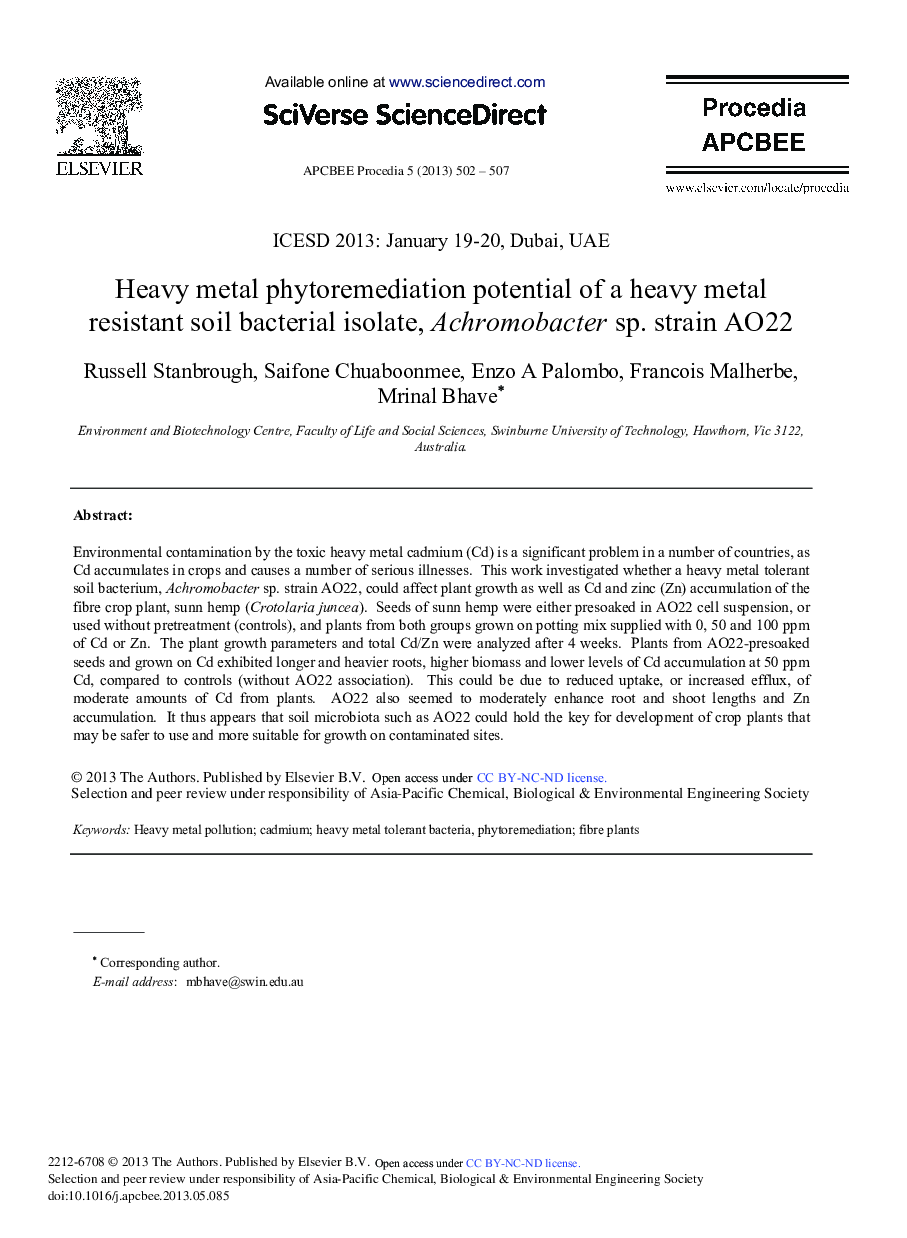| کد مقاله | کد نشریه | سال انتشار | مقاله انگلیسی | نسخه تمام متن |
|---|---|---|---|---|
| 676637 | 1459741 | 2013 | 6 صفحه PDF | دانلود رایگان |

Environmental contamination by the toxic heavy metal cadmium (Cd) is a significant problem in a number of countries, as Cd accumulates in crops and causes a number of serious illnesses. This work investigated whether a heavy metal tolerant soil bacterium, Achromobacter sp. strain AO22, could affect plant growth as well as Cd and zinc (Zn) accumulation of the fibre crop plant, sunn hemp (Crotolaria juncea). Seeds of sunn hemp were either presoaked in AO22 cell suspension, or used without pretreatment (controls), and plants from both groups grown on potting mix supplied with 0, 50 and 100 ppm of Cd or Zn. The plant growth parameters and total Cd/Zn were analyzed after 4 weeks. Plants from AO22-presoaked seeds and grown on Cd exhibited longer and heavier roots, higher biomass and lower levels of Cd accumulation at 50 ppm Cd, compared to controls (without AO22 association). This could be due to reduced uptake, or increased efflux, of moderate amounts of Cd from plants. AO22 also seemed to moderately enhance root and shoot lengths and Zn accumulation. It thus appears that soil microbiota such as AO22 could hold the key for development of crop plants that may be safer to use and more suitable for growth on contaminated sites.
Journal: APCBEE Procedia - Volume 5, 2013, Pages 502-507